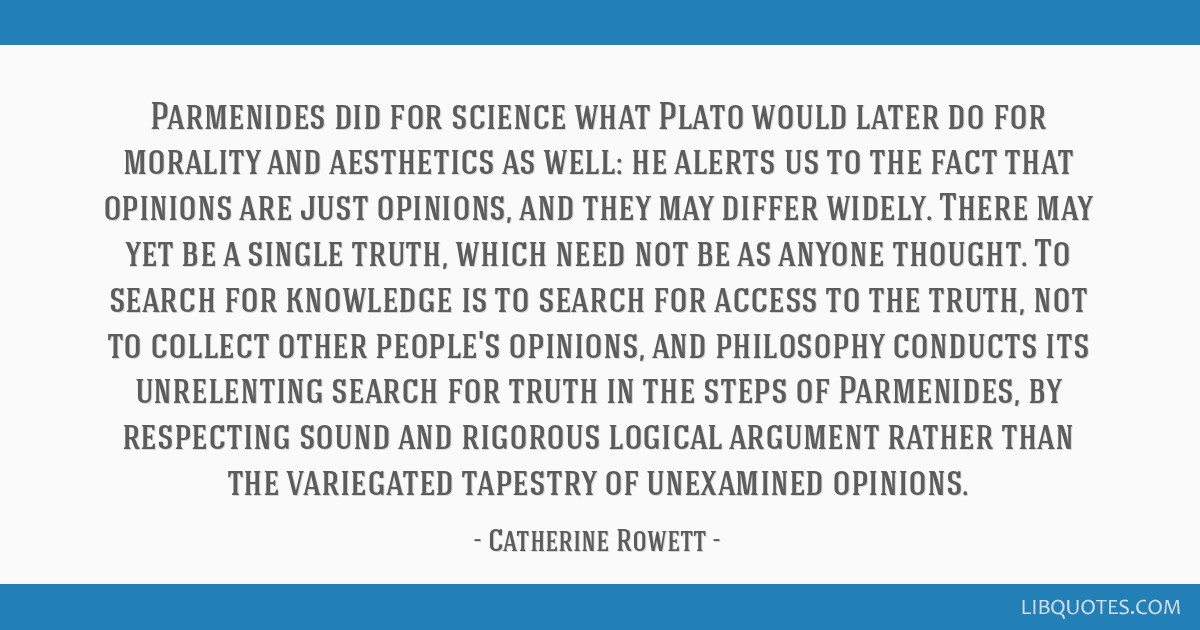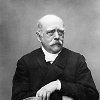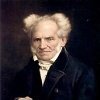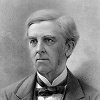Parmenides did for science what Plato would later do for morality and aesthetics as well: he alerts us to the fact that opinions are just opinions, and they may differ widely. There may yet be a single truth, which need not be as anyone thought. To search for knowledge is to search for access to the truth, not to collect other people's opinions, and philosophy conducts its unrelenting search for truth in the steps of Parmenides, by respecting sound and rigorous logical argument rather than the variegated tapestry of unexamined opinions.
Presocratic Philosophy: A Very Short Introduction (2004) - Ch. 2 : Puzzles about first principles























